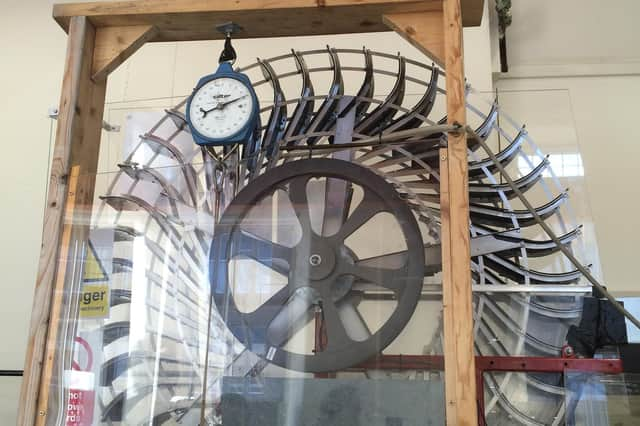University of Strathclyde project tackles African power scarcity with ingenious water wheel


The flat-pack hydro-energy systems for developing countries are the result of a collaboration between Carruthers Renewables and the university’s Advanced Forming Research Centre (AFRC), part of the National Manufacturing Institute Scotland (NMIS).
A one-year £250,000 project, funded by the Department for International Development and the Engineering and Physical Sciences Research Council through the Innovate UK Energy Catalyst, is helping the company to exploit the AFRC’s expertise in advanced manufacturing methods before selecting the most cost effective and sustainable way of making the wheels.
Advertisement
Hide AdAdvertisement
Hide AdThe feasibility study has gained letters of support from the likes of the Crown Estate, Scottish Water and the Scottish Environmental Protection Agency (Sepa).
The first water wheel to be patented in 138 years, Carruthers Wheel is said to be “truly innovative”, producing electricity from waterfalls and rivers with less than five metres drop. This was previously deemed unviable and unprofitable because of the high cost of turbines for small bodies of water.
Following production, the intention is that flat-pack wheels will be shipped to small communities across the world, where they can be installed and maintained by local unskilled workers.
Penny Carruthers, inventor of the wheel, said: “In the past, sites with lower than a five-metre drop have been identified as a possibility for a hydropower before a decision was made to move on due to the high costs. With millions of such sites across the world, there remains a hugely untapped resource, which has the possibility to change the lives of people in the surrounding towns and villages.”
Ekaterina McKenna, business development executive at the AFRC, added: “According to a recent United Nations hydropower report, there are millions of sites worldwide with a river or waterfall of less than five metres drop, especially across Sub-Saharan Africa and South East Asia.
“The feasibility project with Carruthers Renewables is allowing us to support this growing start-up with its manufacturing engineering needs, including extreme cost-effectiveness and ease of maintenance, pushing the boundaries of what is possible, with the hope of taking the hydro- wheel to the next stage of development.”
A message from the Editor:
Thank you for reading this story on our website. While I have your attention, I also have an important request to make of you.
The dramatic events of 2020 are having a major impact on many of our advertisers - and consequently the revenue we receive. We are now more reliant than ever on you taking out a digital subscription to support our journalism.
Subscribe to scotsman.com and enjoy unlimited access to Scottish news and information online and on our app. Visit https://www.scotsman.com/subscriptions now to sign up.
By supporting us, we are able to support you in providing trusted, fact-checked content for this website.
Joy Yates
Editorial Director
Comments
Want to join the conversation? Please or to comment on this article.